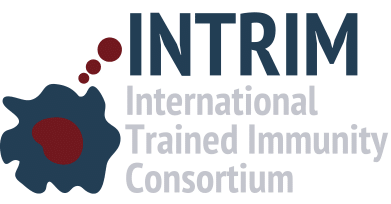Research Consortia
Researchers of the Cluster of Excellence ImmunoSensation2 are involved in a leading role in the following research consortia.

The IRTG2168 program offers research training towards the Doctor of Philosophy (PhD) at two locations, with access to world-class expertise across two continents. This presents a fantastic opportunity to develop competencies beyond those typically acquired when undertaking the more traditional (single award) PhD. Graduate researchers have the ability to train in two expert laboratories in Melbourne and Bonn, build an international network of mentors and collaborators and experience other cultures to develop a truly global perspective.
The Research and Graduate School Immunosciences brings together researchers form the universities of Bonn and Melbourne. Program Directors are Prof. Sammy Bedoui, of the University of Melbourne and ImmunoSensation2 member Prof. Christian Kurts of Bonn University.

The SFB 1454 investigates how anthropogenic stimuli trigger immune cell programming and metaflammation, how the interaction of reprogrammed cells occurs in inflamed tissue, and how specific signaling pathways activated in metaflammation contribute to pathogenesis. In a bi-directional translational approach, the newly discovered mechanisms are investigated in patient cohorts as well as in the longitudinal population study 'Rheinlandstudie'.
Within the SFB, various members of ImmunSensation2 jointly work with colleagues from the German Center of Neurodegenerative Diseases (DZNE) and the Max-Planck-Institute for Metabolic Research. Spokesperson is the ImmunoSensation2 member Prof. Dagmar Wachten.

The TRR 237 investigates how the nucleic acid metabolism is functionally connected to the nucleic acid defense system and how defined stress responses are linked to the nucleic acid defense pathways. Further, the researchers are interested in the molecular mechanisms involved in the link of DNA damage and repair pathways to nucleic acid defense pathways, and want to elucidate which molecular switches regulate a predominant type I IFN response in contrast to inflammasome-induced cell death. Further research targets are to unravel the pathogenic principles by which dysregulated nucleic acid immunity causes sterile inflammatory disease, how recognition of pathogen-associated nucleic acids contributes to the initiation of an antimicrobial response, and how dysregulation limits the resolution of infection and triggers infection-associated autoimmune phenotypes. Finally the researchers are interested in identifying the implications for antimicrobial defense against pathogens switching host species within their life cycle (e.g. insect-transmitted virus).
Within the TRR, various members of ImmunSensation2 jointly work with colleagues from the Ludwig-Maximilians-Universität München and the Dresden University of Technology. Site-speaker Bonn is the ImmunoSensation2 member Prof. Gunther Hartmann
International collaborations
The Cluster of Excellence ImmunoSensation2 offers international student exchange and training programmes. We work closely with the leading research centres in immunology worldwide. ImmunoSensation2 is involved in international consortia on current topics in immunology.
Center for Computational & Integrative Biology
Harvard Medical School
Boston, MA 02114-2790
USA
Center of Molecular Inflammation Research
Norwegian Center of Excellence
Norwegian University of Science and Technology NO-7491 Trondheim, Norway
+47 72 82 53 37 Centre of Molecular Inflammation Research (CEMIR)Institute of Advanced Sciences and Medical Care
Waseda University
162-0041 Tokyo
Japan
Medical School
University of Massachusetts
01655 Worcester, Massachusetts
USA
Immunology Frontier Research Center
Osaka University
565-0871 Osaka
Japan
Monash Institute of Medical Research
Monash University
3168 Clayton, Victoria
Australia
The Peter Doherty Institute for Infection and Immunity
University of Melbourne
3000 Melbourne, Australia
+61 3 9035 3555 The Peter Doherty Institute for Infection and ImmunityThe Edmond and Lily Safra Center of Brain Sciences
The Hebrew University
91904 Jerusalem
Israel
Walter and Eliza Hall Institute of Medical Research
Melbourne University
Parkville Victoria 3052, Melbourne, Australia
+61 3 9345 2555 Walter and Eliza Hall Institute of Medical ResearchDept. of Biological Chemistry
The Silberman Institute of Life Sciences, and the Interdisciplinary Center for Neural Computation
The Hebrew University of Jerusalem
Edmond Safra campus - Givat Ram
91904 Jerusalem
Israel
International Trained Immunity Consortium (INTRIM)
A highly active international collaborative structure is the International Trained Immunity Consortium (INTRIM) that is geared towards understanding adaptation within the innate immune system with participation of scientists from Bonn and other renowned international immunology centers including Radboud University, the Broad Institute at Harvard/MIT, the Trinity College in Dublin, Mount Sinai Medical School, and the A-Star Institute in Singapor.

